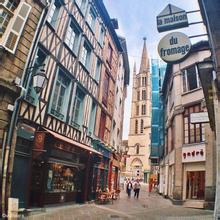Introduction of Brazilian Coffee producing areas with a place in the Global Coffee Market
General K. Fonseka launched a coup on November 15, 1889, overthrowing the monarchy and establishing the United States of Brazil. Under the slogan of "order and progress" and based on the presidential system, the new government has strengthened Brazil's modernization. In addition to producing 3/4 of the world's coffee, it has also made good economic achievements. Later, under the panic of the world economy in the 1930s, the "coffee economy" was dealt a heavy blow, and the subsequent coups, dictatorship and constitutional monarchy plunged politics into chaos.
Pakistan came to power in a military coup in 1964 and changed its name to the Federative Republic of Brazil in 1967. In March 1985, the junta returned power to the people. On November 15, 1989, Pakistan held its first national direct election in nearly 30 years, and Fernando Collor was elected president. On December 29th, President Collor was forced to resign on suspicion of taking bribes, and Vice President Itamar Franco took over as president on the same day. On October 3, 1994, Fernando Henrique Cardoso won the national election and became the 38th president of Brazil on January 1, 1995. On October 4, 1998, Cardoso was re-elected. On January 1, 1999, Cardoso was inaugurated as Pakistan's 39th president until December 31, 2002.
In October 2002, Lula, a candidate of the leftist coalition led by the Labor Party, won the general election, becoming the first directly elected left-wing president in Pakistan's history. In October 2006, Lula defeated the Social Democratic candidate Alkmin and won re-election. Dilma Rousseff won the general election in October 2010 as a candidate for the Labour Party. On May 12, 2016, the plenary session of the Brazilian Senate approved the impeachment of President Rousseff. Rousseff will be forced to leave office for up to 180 days, during which the presidency will be replaced by Brazilian Vice President Michel Temer.
The main distribution of coffee producing areas
Brazilian coffee (South America)
This coffee producer, with all grades and types of coffee, accounts for 1/3 of the global consumption and occupies a place in the global coffee market. Although Brazil faces several times more natural disasters than other regions, there is enough acreage to make up for it.
There are many kinds of coffee here, but its industrial policy is large and cheap, so there is not much premium coffee, but it is a good choice for mixing other coffees.
It tastes mellow and neutral, and it can be boiled directly or mixed with other kinds of coffee beans into mixed coffee, which is also a good choice.
Other kinds of Brazilian coffee, such as Rio and Parana, can be produced in large quantities because they do not need too much care. Although the taste is rough, it is a kind of high-quality and inexpensive coffee, which has its own standards due to its distribution all over the country and its uneven solid quality (NO.2-NO.8 according to the amount of adulterants, NO.13-NO.19 according to the size of beans, and six grades according to taste). Almost all Arabica varieties are of good quality and stable in price. The most famous and regarded as fine Brazilian coffee beans is "Brazil?" Chocolate Coffee BrazilChocola) ", in addition to the high production of Brazil? Santos coffee beans have been the necessities of blended coffee since ancient times and are familiar to the public. Recently, the "Tolma Cup" is also highly rated.

Important Notice :
前街咖啡 FrontStreet Coffee has moved to new addredd:
FrontStreet Coffee Address: 315,Donghua East Road,GuangZhou
Tel:020 38364473
- Prev

The development process of Turandot, which is known as "the soul of coffee" inheriting the quintessence of European coffee culture.
[Turandot Turandot] China office headquarters is located in Hanwei Building, CBD Business District, Beijing, adjacent to Beijing Jingguang Center, International Trade Center, the first Embassy District, and located in the core of the National Business Center in Beijing, China. The appearance of Hanwei Mansion is elegant, magnificent and magnificent, with the great view of both Eastern and Western architecture. it is both magnificent and dignified, with modern interior.
- Next

15% of consumers are affected by the environment and atmosphere-the number of cafes in China will increase in the past five years.
China has a tradition of tea culture, but compared with the prosperity of cafes, the development of Chinese teahouses is tepid, with an increase of 4 per cent from 48842 to 50984 between 2007 and 2012. MatthewCrabbe, director of Asia Pacific Research at Mintel, said that after the coffee chain entered China in the late 1990s, it expanded at a faster speed, but teahouses always struggled to find a way out and eventually consumed.
Related
- Beginners will see the "Coffee pull flower" guide!
- What is the difference between ice blog purified milk and ordinary milk coffee?
- Why is the Philippines the largest producer of crops in Liberia?
- For coffee extraction, should the fine powder be retained?
- How does extracted espresso fill pressed powder? How much strength does it take to press the powder?
- How to make jasmine cold extract coffee? Is the jasmine + latte good?
- Will this little toy really make the coffee taste better? How does Lily Drip affect coffee extraction?
- Will the action of slapping the filter cup also affect coffee extraction?
- What's the difference between powder-to-water ratio and powder-to-liquid ratio?
- What is the Ethiopian local species? What does it have to do with Heirloom native species?

